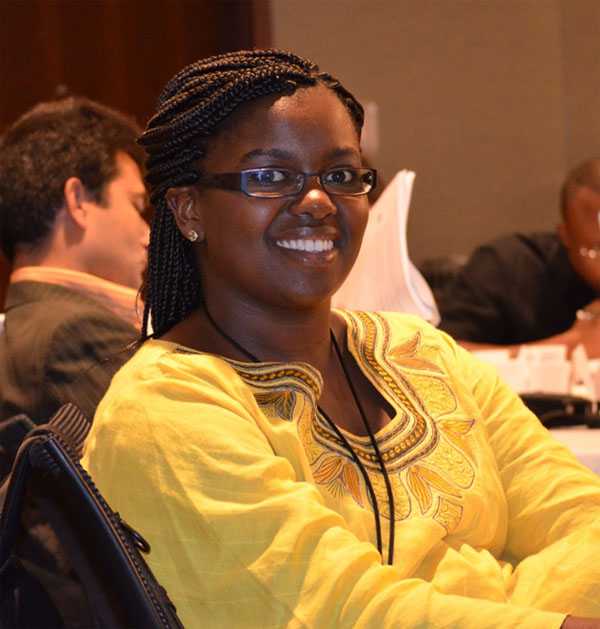CDC Responds to the 2014 Ebola Outbreak: Monique
Respect for Culture Key Tool in Ebola Battle

Monique, a CDC health communications specialist, is excited to deploy in support of the Ebola outbreak in West Africa.
When Monique arrives in Africa this week to help battle the Ebola outbreak, she will be bringing more than the standard trunkful of CDC-issued gear and personal protective equipment.
"What I bring is my technical skills and my understanding of the culture and customs," says Monique, who was born in Michigan but was raised in Rwanda. To add to that unique mix of cultures, she is now married to a Nigerian. She has lived and worked in several African nations. In addition to English she speaks Kinyarwanda (common to Rwanda and Burundi), Swahili, and French.
Monique is quick to point out that there is no single "African culture" – it’s a big continent of many nations and people.
"But we do share things in common, such as the proper way to address elders or our difficulty remembering to avoid touching others during an Ebola outbreak – touching is a big thing in Africa," she says. "I don’t have to think about these things because I am an African, an insider. I am received not as ‘they are coming to help us,’ but as ‘we are helping ourselves.’"
While this is Monique’s first deployment for an Ebola outbreak, it’s not her first experience with the disease. When her family was forced to flee Rwanda during the genocide of 1994, they were refugees in the Democratic Republic of Congo (formerly Zaire) when an Ebola outbreak erupted. Although the outbreak was not occurring in the same region where her family was staying, she remembers the impact fear of infection had within the country. She later returned to the U.S. and joined the Navy. Her six-year stint saw her deployed in support of Operation Enduring Freedom and Operation Iraqi Freedom.
During her West Africa deployment for CDC, Monique will be working as a communications specialist.
"The biggest thing we’ll be doing is supporting the efforts these countries are doing to contain this deadly virus and making sure the right messages are dispersed," she says. "For example, there are challenges that people don’t believe Ebola is real, are afraid of the stigma of being the contact of a patient, or simply don’t know what to do."
Don’t try telling Monique that this is a heroic effort. To her, the real heroes are the lay people she’ll be training and sending out into the field.
"These are not typical health workers but everyday people – janitors and sanitation workers and hotel staff – who go out into the communities we cannot reach and disseminate the message of how to stop Ebola," she says. "That is what is important: working with youth and local people, and community leaders to spread the message. We from CDC can’t reach all these people, so must rely on the volunteers in the communities to spread the awareness. We train as many as we can, arming anyone and everyone with the skill and knowledge to educate everyone they come into contact with on preventive measures."
When she returns from her Ebola deployment, Monique will resume her duties as a CDC member of the Integrated Disease Surveillance and Response Program which works with WHO and other partners to help nations with limited healthcare infrastructure improve their capacity to detect, respond to, and prevent disease outbreaks.
- Page last reviewed: August 25, 2014
- Page last updated: August 25, 2014
- Content source:


 ShareCompartir
ShareCompartir